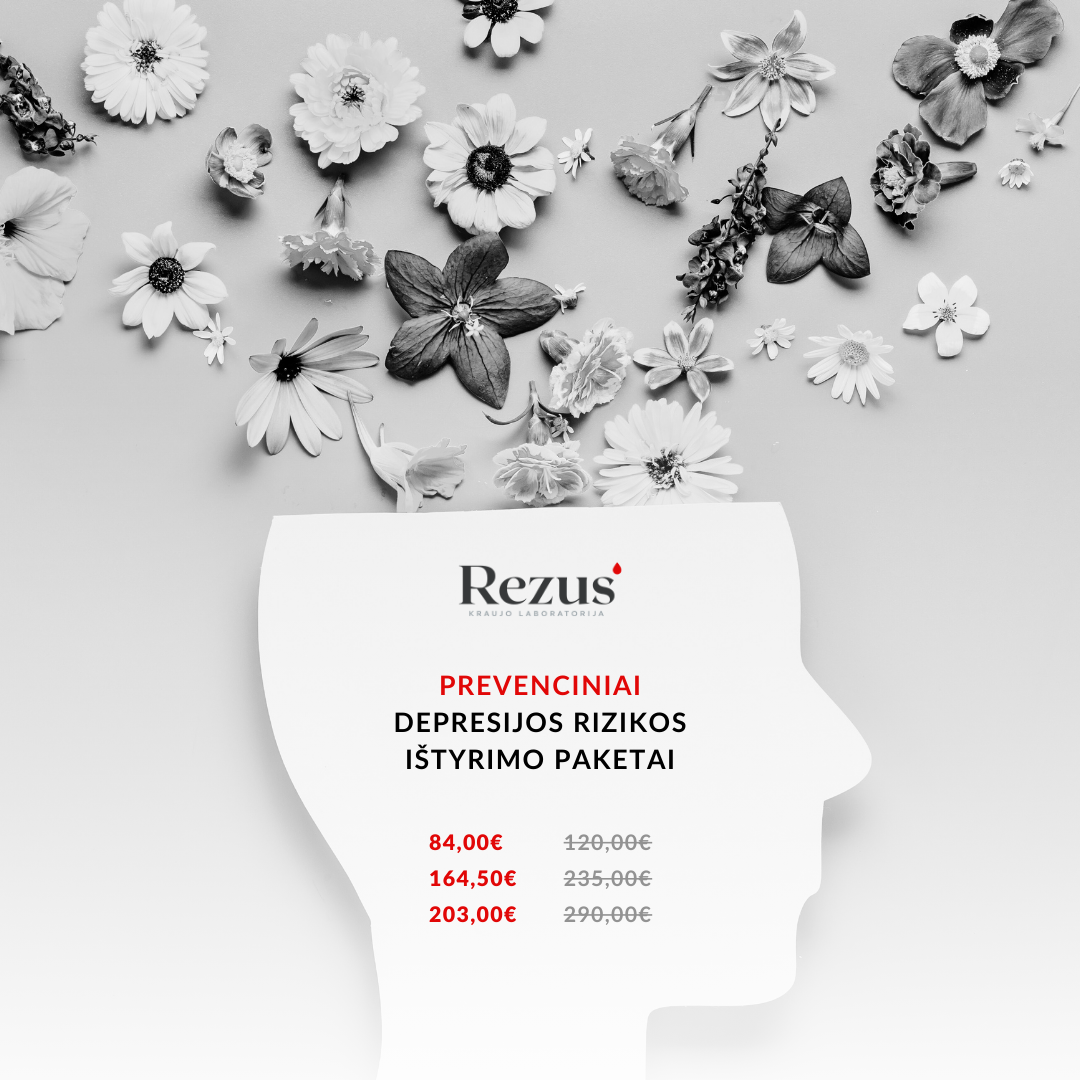What can blood tests reveal?
Blood tests can reveal not only a person's physical condition but also determine mental health. Tests that assess the chemical composition of the blood and other indicators can determine not only the presence of a disease but also help identify the risk of its occurrence. Blood tests are one of the tools used for comprehensive health assessment. They can be useful in identifying potential risk factors for depression, so we invite you to take care of yourself and register for a preventive depression risk test!

The lack of nutrients such as proteins, B-group vitamins, vitamin D, magnesium, zinc, selenium, iron, calcium, and omega-3 fatty acids is significant for brain and nervous system function, which can impact the development of depression symptoms.
B-group vitamins are essential for maintaining the normal functioning of the nervous system by producing monoamine oxidase, DNA synthesis, and phospholipid restoration and support. Furthermore, low levels of vitamins B9 and B12 are associated with a poorer response to antidepressants. It has been shown that individuals with low serum folic acid concentrations have a 67% higher risk of developing depression. The nervous system immediately warns of a vitamin B1 deficiency – symptoms may include neuritis (pain), peripheral neuropathy: tingling, numbness, or even pain in the limbs (due to impaired microcirculation), vertigo – dizziness or a sensation of rocking as on a ship. Other symptoms indicating a lack of vitamin B1: panic attacks, nightmares, anxiety, nervous tension, brain 'fog', depression.
People who lack vitamin D may have an increased risk of depression. Research indicates that low intake of certain minerals may be associated with an increased risk of depression in the general population. A nutrition study using data from the Furukawa Nutrition and Health Study showed that additional intake of magnesium, calcium, iron, and zinc reduces the risk of mental health problems.
Many residents of Lithuania experience stress today. During stress, not only is liver glycogen depleted, which is very limited, but also other energy reserves: fatty acids from adipose tissue and proteins from muscles to absorb oxygen in the body, and thyroid activity (TSH) and other hormones are activated.
Therefore, we invite you to undergo a preventive depression risk test:
- The minimal package consists of 11 tests: total protein; ferritin; potassium; magnesium; zinc; calcium; vitamin D; vitamin B12; vitamin B9 (folic acid); TSH; cortisol.
- The main package consists of 14 tests: total protein; ferritin; potassium; magnesium; zinc; calcium; vitamin D; vitamin B12; vitamin B9 (folic acid); TSH; cortisol; vitamin B1; selenium; copper.
- The maximum package consists of 15 tests: total protein; ferritin; potassium; magnesium; zinc; calcium; vitamin D; vita- min B12; vitamin B9 (folic acid); TSH; cortisol; vitamin B1; selenium; copper; omega-3 index.
IMPORTANT: if after performing these test packages, the blood test results are within normal limits, i.e., indicating that you are healthy, but you do not feel well: suffer from constant fatigue, lack of energy, anxiety, panic attacks, depression, etc., we recommend consultations with our specialists: a psychologist or psychiatrist with a 50% discount.

Psychiatrist-psychotherapists
Doctors in this field can help detect and evaluate symptoms you are experiencing, such as:
- Mood disorders
- Anxiety disorders
- Neurotic disorders
- Stress disorders
- Psychosomatic disorders
- Sleep disorders
- Psychotic disorders
- Personality and behavior disorders
- Medical and psychotherapeutic treatment
Medical psychologists
Doctors in this field can help in the following areas:
- Emotional difficulties
- Personal growth
- Relationship difficulties
- Eating disorders
- Personality disorders
- Psychosomatics
- Traumatic experiences
- Sexual difficulties
Live consultations with psychiatrist-psychotherapists and medical psychologists are conducted in Vilnius, Švitrigailos g. 11b.
For residents of other cities, we offer to try remote consultations!

